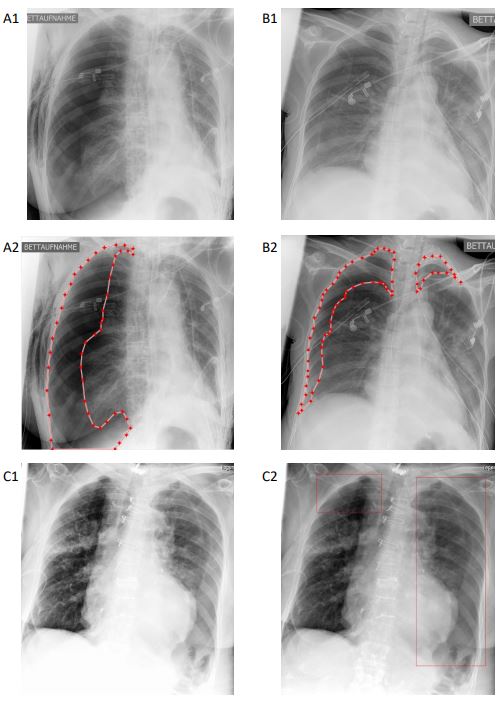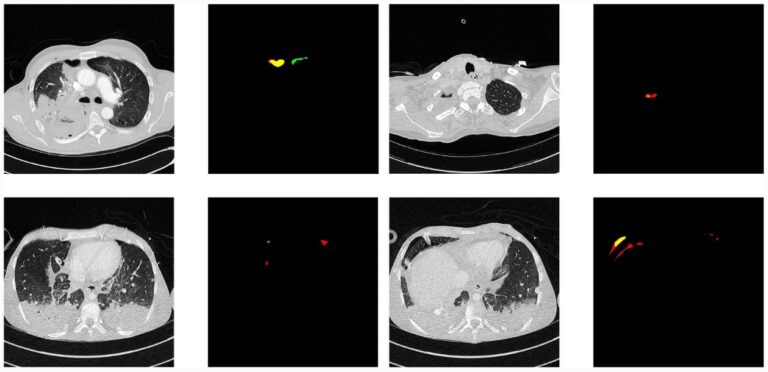
Pneumothorax detection in chest radiographs: optimizing artificial intelligence system for accuracy and confounding bias reduction using in-image annotations in algorithm training
Due to the noisy annotation quality of public training data and confounding thoracic tubes, the diagnostic accuracy of artificial intelligence (AI) pneumothorax (PTX) detection in chest radiographs is limited. Therefore, the authors of this study hypothesized that in-image annotations of the dehiscent visceral pleura for algorithm training boosts the algorithm’s performance and suppresses confounders. Their results in this study are










